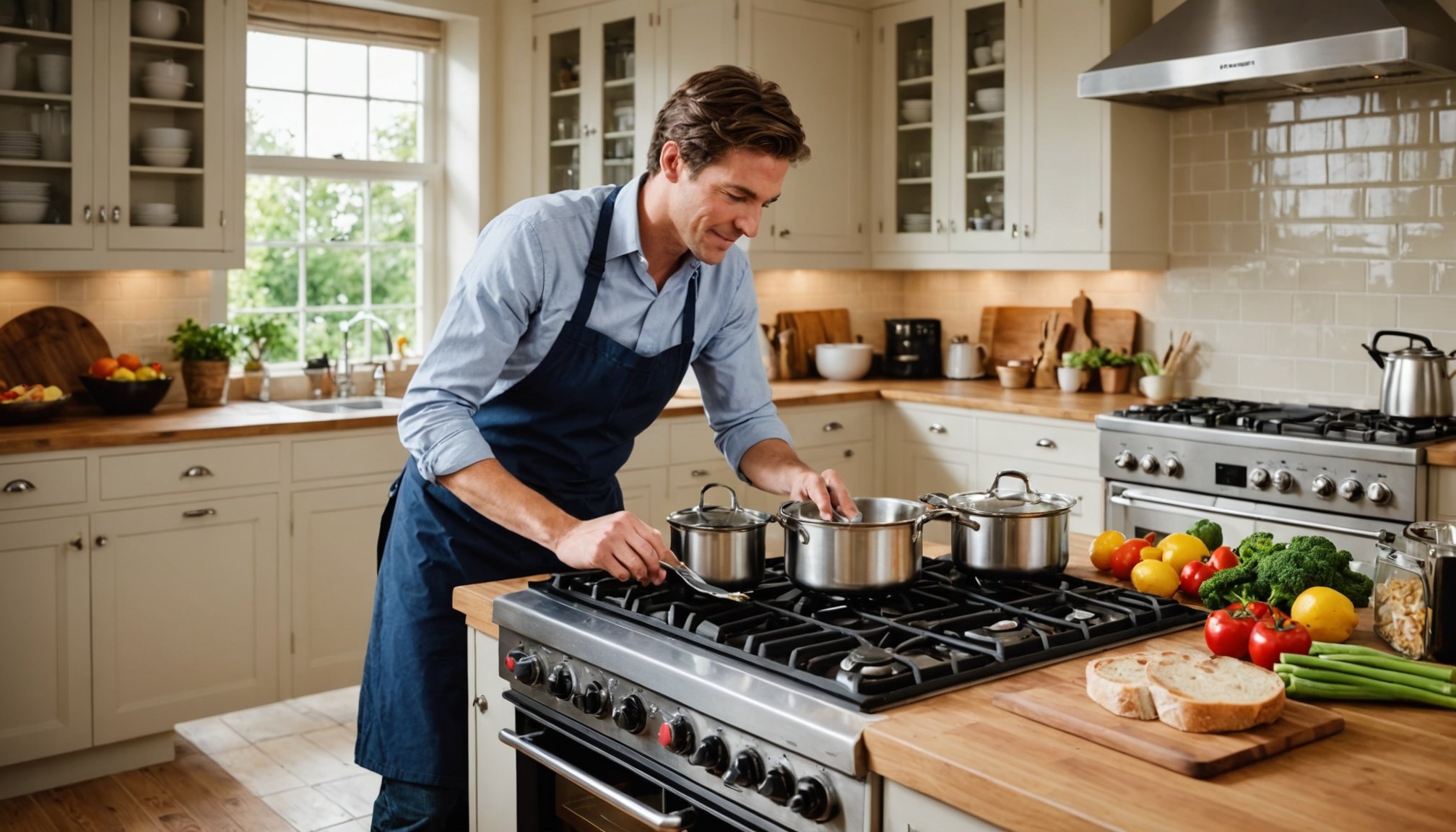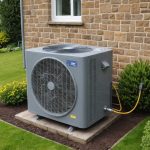Energy-Efficient Cooking Appliances
In the UK, adopting energy-efficient appliances in your kitchen can significantly cut down on energy consumption and reduce costs. These appliances are designed to minimise energy use while maintaining performance, offering a sustainable solution for modern households.
One optimal choice for UK kitchens is the induction hob. These hobs are renowned for their superior cooking efficiency, heating faster than conventional electric stoves while using less energy. Additionally, their precise control over cooking temperatures helps to conserve energy further.
Also to see : Essential Considerations for Installing a Heat Pump in Your Rural Scottish Home: A Comprehensive Guide
When comparing conventional ovens with energy-efficient variants, the latter often come equipped with advanced insulation and convection features. These benefits help distribute heat evenly, reducing overall cooking time and saving energy.
Microwaves, as energy-efficient options, provide another valuable asset due to their ability to cook and reheat food quickly, using only a fraction of the energy consumed by traditional ovens.
Have you seen this : Top Drought-Resilient Plants Perfect for Your UK Garden
By opting for energy-efficient appliances, UK households not only reap savings on their energy bills but also make a substantial impact on reducing their carbon footprint. This environmentally-conscious choice is both financially and ecologically rewarding, fostering a future where sustainability is integrated into daily kitchen duties.
Optimal Cooking Methods
To optimise energy efficiency in the kitchen, embracing cooking methods like steam cooking and batch cooking can be highly beneficial. Steam cooking is not only healthy but also reduces energy consumption compared to conventional methods. It allows the heat to distribute evenly, cooking food faster and retaining more nutrients. It’s ideal for vegetables, grains, and even meats, making it a versatile choice.
Batch cooking is another savvy approach, where preparing meals in larger quantities saves energy. By utilising the oven or stove for multiple portions at once, you reduce the repeated energy expenditure from cooking several times. This strategy is not only sustainable but also a time-saver for busy individuals.
For even greater energy efficiency, the choice of cookware material plays a crucial role. Using pots and pans with materials that conduct heat well, like copper or stainless steel, can enhance cooking efficiency. These materials heat up quickly and distribute heat evenly, which lowers the cooking time and energy used.
Incorporating these cooking methods into your routine can significantly decrease your energy consumption while ensuring nutritious meals. With these strategies, it’s possible to cook sustainably without compromising on quality or taste.
Smart Energy Management
Maximising energy management in the kitchen is a smart way to reduce costs. First, consider the timing of your cooking sessions. By scheduling cooking times during off-peak utility hours, you can achieve significant utility savings. This not only lowers costs but also alleviates pressure on the energy grid.
When cooking, using lids and covering pots is crucial. This technique retains heat, ensuring your meals cook more efficiently and consume less energy. It’s a simple yet effective step that can translate into savings on your electricity bill over time.
Choosing the right kitchen appliances is also essential. Understanding energy ratings can significantly impact your overall consumption. Opt for appliances with high energy ratings, as they typically use less energy while delivering the same performance as less efficient models. Look for the Energy Star label, which designates appliances that meet strict utility savings guidelines.
Incorporating these cooking tips into your daily routine can contribute substantially to reducing energy use. Efficient energy management not only benefits your wallet but also plays a role in fostering a more sustainable environment. Through informed choices and conscious habits, you actively participate in a greener lifestyle.
Recipes for Energy Efficiency
When pursuing a sustainable lifestyle, integrating energy-saving recipes into your cooking routine can significantly reduce energy consumption. Start with quick meals that require minimal time and effort. Stir-fries, for example, are delightful options. They cook swiftly, packed with flavours, while utilizing little energy.
Batch cooking is another excellent strategy for energy efficiency. Prepare multiple servings at once and store leftovers for later. Efficient cooking techniques include using pressure cookers or slow cookers, as these appliances consume less energy over time.
Consider exploring seasonal meal ideas. For autumn, opt for roasted vegetables. Using the residual heat of your oven is a clever tactic. During summer, embrace fresh salads with minimal cooking involved.
To maximize your efficiency, ensure your kitchen appliances are well-maintained and used correctly. Keep your microwave for reheating, as it’s quicker and uses less electricity than an oven. Choose recipes wisely, those that leverage the heat from cooking multiple dishes at once.
By adopting these practices, not only do you prepare delicious meals, but you also support environmentally-conscious habits. Making small adjustments has a significant impact, paving the way for more sustainable living.
Statistics and Benefits of Energy-Saving Techniques
With rising utility costs, understanding the energy savings statistics of various cooking methods can be invaluable. Induction cooktops, for example, are around 84% efficient compared to gas and traditional electric cooktops, which are only about 40% and 75% efficient, respectively. This difference translates to noticeable cost reduction over time, especially for households that cook frequently.
Additionally, energy-efficient appliances are central to long-term kitchen efficiency. By investing in energy-saving devices, you lower your energy consumption and utility bills. It’s estimated that upgrading to energy-efficient appliances can reduce a household’s energy use by about 20-30%, which directly impacts cost reduction.
It’s not just about saving money, though. The environmental benefits of using energy-saving techniques in the kitchen are significant as well. Reduced energy consumption decreases the overall carbon footprint. This is crucial in the fight against climate change, as household energy use accounts for a considerable portion of global emissions.
By focusing on these efficient practices, you can achieve a sustainable lifestyle that aligns with both financial objectives and environmental responsibilities.











